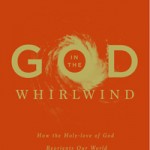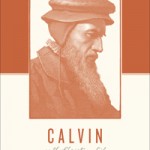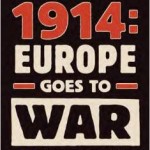I love to read. By God’s grace I am a pretty fast reader; I usually read a couple books each week. I find it helpful to summarize my thoughts on each book and I offer those thoughts in the hope that you will be encouraged to either read or pass over the given title.
 God in the Whirlwind: How the Holy-Love of God Reorients Our World by David Wells. What a book. After years of constructive deconstruction of modern evangelicalism in the west Wells charts a path forward for faithfulness. Wells convincingly argues that what churches must rediscover is an understanding of God’s “holy-love” (the hyphen is very important). The book’s final paragraph sums it all up quite brilliantly:
God in the Whirlwind: How the Holy-Love of God Reorients Our World by David Wells. What a book. After years of constructive deconstruction of modern evangelicalism in the west Wells charts a path forward for faithfulness. Wells convincingly argues that what churches must rediscover is an understanding of God’s “holy-love” (the hyphen is very important). The book’s final paragraph sums it all up quite brilliantly:
Today, we need a fresh vision of God and his character of holy-love. Our understanding of his greatness gets worn down, sometimes worn out, by the constant rubbing against our highly modernized life. It is this vision, though, this knowing of God, that puts steel into spines and fire into Christian hearts. When we are God-centered in our thoughts, God-fearing in our hearts, when we see with clarity what his character of holy-love is like, he begins to have weight in our lives. When that happens we become, not just occasional visitors to the eternal, but its permanent residents, its citizens. And that is when the church becomes more than just another organization but, in fact, the outpost of eternity in this wounded world. May the church indeed be all that it is in Christ, so that through its life the glory of God will be seen anew in all its splendor! (242)
Amen.
 Calvin on the Christian Life: Glorifying God and Enjoying Him Forever by Michael Horton. The latest entry into Crossway’s “Theologians on the Christian Life” is a marvelous introduction to the Genevan reformer. What Mark Beach did for the Institutes Horton does for all of Calvin’s corpus. Horton wisely devotes careful attention to Calvin’s doctrine, for the Geneva reformer had not place for a dichotomy between doctrine and life. I do think that Horton’s Escondido emphases come through in his discussions on justification, union with Christ, and two kingdoms. Reader will notice a conspicuous rise of Luther footnotes in these sections. Nevertheless, if you are looking for an imminently readable and practical introduction to Reformed faith and practice, this is great place to start.
Calvin on the Christian Life: Glorifying God and Enjoying Him Forever by Michael Horton. The latest entry into Crossway’s “Theologians on the Christian Life” is a marvelous introduction to the Genevan reformer. What Mark Beach did for the Institutes Horton does for all of Calvin’s corpus. Horton wisely devotes careful attention to Calvin’s doctrine, for the Geneva reformer had not place for a dichotomy between doctrine and life. I do think that Horton’s Escondido emphases come through in his discussions on justification, union with Christ, and two kingdoms. Reader will notice a conspicuous rise of Luther footnotes in these sections. Nevertheless, if you are looking for an imminently readable and practical introduction to Reformed faith and practice, this is great place to start.
 Catastrophe 1914: Europe Goes to War by Max Hastings. With this year being the centenary of World War I’s outbreak, I have purposed to read several works on The Great War. Fascination with The War to End All Wars is not nearly as pronounced in our country as it is over in Europe and my historical reading has reflected such a reality. I have read dozens of books on World War II, but – as best I can tell – have only read two on the preceding catastrophe. And that is an apt title for Hastings most recent volume. The acclaimed Hasting hand on history is visible for all to see: penetrating analysis, moving personal accounts, and thoughtful questioning of the status quo. I do think, however, like many of Sir Max’s other books, this book has a penchant for so filling the narrative with personal recollections that the overall flow becomes disjointed. This may prove to be one the best publications in year filled with offerings on World War I.
Catastrophe 1914: Europe Goes to War by Max Hastings. With this year being the centenary of World War I’s outbreak, I have purposed to read several works on The Great War. Fascination with The War to End All Wars is not nearly as pronounced in our country as it is over in Europe and my historical reading has reflected such a reality. I have read dozens of books on World War II, but – as best I can tell – have only read two on the preceding catastrophe. And that is an apt title for Hastings most recent volume. The acclaimed Hasting hand on history is visible for all to see: penetrating analysis, moving personal accounts, and thoughtful questioning of the status quo. I do think, however, like many of Sir Max’s other books, this book has a penchant for so filling the narrative with personal recollections that the overall flow becomes disjointed. This may prove to be one the best publications in year filled with offerings on World War I.
Click here to find other entries in the Recent Reads series.
